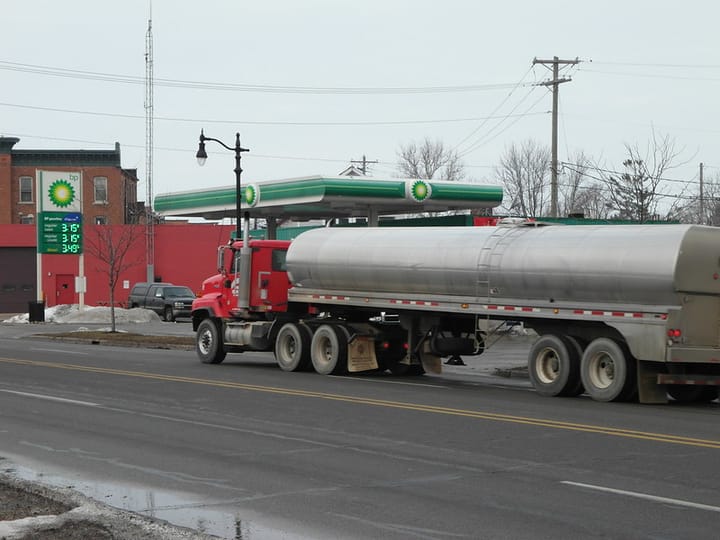Climate Litigation Expands In Complexity And Influence, Analysis Finds

Climate litigation is growing in complexity and being leveraged in ways to both advance and stymie climate action, according to a new analysis on the state of global climate lawsuits. The analysis finds that, overall, litigation continues to be an important tool influencing climate governance, with the potential to shape policy and financial decision-making and bolster accountability.
“Over this last decade, courts and the law have become one piece of the complicated puzzle of climate governance,” Joana Setzer, associate professorial research fellow at the Grantham Research Institute on Climate Change and the Environment, and co-author of the “Global trends in climate change litigation: 2025 snapshot” report, said during a report launch event on Thursday.
Now in its seventh year, the global trends report is the world’s largest and most comprehensive analysis on the field of climate change litigation. The field has grown rapidly especially over the last ten years, with a surge in cases filed since 2015 attempting to hold both governments and corporations accountable for the worsening climate crisis. According to the report, “litigation has played an increasingly prominent role in the domestic implementation of the Paris Agreement,” which was established in December 2015. The report defines climate litigation as cases brought before judicial or quasi-judicial bodies that involve material issues of climate change science, policy, or law.
Almost 3,000 climate change cases have been filed to date (since 1986) across nearly 60 countries, with the US being home to the vast majority (1,899) of these cases, followed by Australia (164), the UK (133), and Brazil (131). At least 226 new climate lawsuits were filed around the world in 2024, the report found.
Out of the new cases filed last year, the analysis reports 60 that are not aligned with climate goals, including challenging governments’ authority to pursue a proposed climate policy or challenging companies’ environmental, social and governance (ESG) agendas. “Political headwinds are changing the landscape of climate litigation globally, particularly in the US,” the report notes. While President Trump’s attempts to dismantle US climate and environmental protections are seeing pushback through the courts, the Trump administration and Republican-led states are also filing lawsuits seeking to block or challenge state climate laws and lawsuits that target the fossil fuel industry. The report authors predict there will be more climate cases coming from multiple directions under the Trump administration, seeking to both stymie and promote climate action.
“The situation in the United States shows that litigation is a two-way street and can be used to help climate action and also to slow it down,” Setzer said.
The US Department of Justice, for example, recently brought a lawsuit against the state of Hawaii attempting to preemptively thwart the state from suing major oil and gas companies over climate damages. Hawaii went ahead and filed its climate lawsuit against the companies the next day.
Hawaii’s lawsuit is one of more than 30 cases in the US brought by states and municipalities against fossil fuel companies aiming to hold them accountable for alleged deception about the dangers of fossil fuels. Many of the cases seek to recover monetary damages, arguing that the industry’s deception and disinformation on climate change exacerbated the damaging impacts and costs of the climate crisis that governments are now incurring.
“The ability of state and local governments to cover rising costs due to climate change will face an increasing strain in the years to come. Lawsuits that force fossil fuel companies to pay a fraction of the damages they’ve caused are a critical pathway to protect American families and state and local budgets,” David Arkush, director of Public Citizen’s climate program, said in a statement.
Arkush testified on Wednesday as the Democrats’ minority witness in a Senate Judiciary subcommittee hearing on foreign funding and specifically Chinese influence on litigation – which has so far been brought mostly by Democrat-led cities and states – targeting the fossil fuel industry. “Both China and the Democrats want to bankrupt the American energy industry,” Senator Ted Cruz (R-Texas), who chaired the hearing, claimed.
“Republicans tried to portray climate litigation basically as a subversive effort to help China achieve energy superiority over the United States,” Larry Kramer, president and vice chancellor of the London School of Economics, which houses the Grantham Research Institute, said during Thursday’s report launch. “It shows the extent to which the fossil fuel industry and those in government beholden to it are beginning to worry about the growing effect of climate litigation.”
While the majority of climate cases continue to be filed against governments, corporate climate litigation continues to grow. The report finds that more than 80 “polluter pays” climate cases have been filed since 2015, including 11 new cases in the last year. One high-profile case initially filed in 2015, Lliuya v. RWE, was recently decided by a German court. Although the court dismissed the case, the court still confirmed that polluting companies can, in principle, be held liable for climate change harms.
“The broader impacts of climate litigation are becoming increasingly visible and well-documented. It is no longer a niche concern; it is increasingly seen as a financial risk,” said Catherine Higham, senior policy fellow at the Grantham Research Institute and a report co-author.
Climate litigation, according to the report, may be starting to have wider impacts on areas like financial decision-making and legislation. Polluter pays climate litigation, for example, is starting to influence new legislation aiming to hold fossil fuel companies financially responsible for climate change harms. Last year saw the emergence of these so-called climate superfund laws in the US with enactment by both Vermont and New York; that legislation has sparked backlash and currently faces legal challenges from industry groups, Republican attorneys general, and the Trump administration.
The report also finds that climate litigation is increasingly reaching the highest courts around the world, such as supreme courts or constitutional courts – 276 climate-related cases have reached these highest courts since 2015.
And international courts are being activated to weigh in on questions of legal responsibilities to address climate change. In May 2024 the International Tribunal for the Law of the Sea issued an advisory opinion affirming that states have stringent obligations to control greenhouse gas emissions in order to protect the marine environment. Pending advisory opinions from the Inter-American Court on Human Rights and the International Court of Justice could reshape climate obligations under international law and catalyze new litigation, climate justice experts say.
“Climate litigation is no longer a fringe issue,” Kramer said. “It has instead become widely regarded as an established method of shaping, testing, and advancing climate action around the world.”


